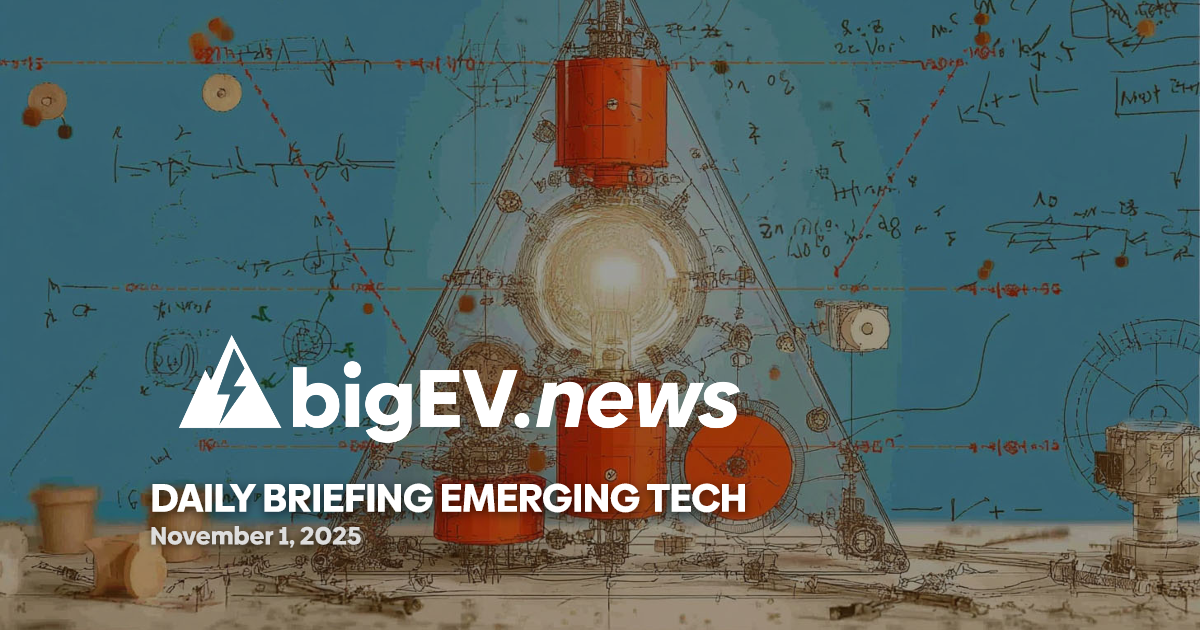Lab-driven advances in AI, materials, imaging, and energy storage set the stage for transformative industrial change.
At a glance – The past 24 hours have seen a surge in deep tech breakthroughs poised to redefine clean and electrified industries. From revolutionary AI models and quantum-inspired materials to next-generation energy storage and biomedical imaging, research labs and startups are accelerating the pace of innovation. These advances are not yet commercialized but are already shaping the strategic direction of sectors ranging from manufacturing and healthcare to energy and robotics. The convergence of artificial intelligence, novel materials, and quantum technologies is driving a wave of pre-commercial solutions that promise to address longstanding challenges in efficiency, sustainability, and scalability. Industry analysts note that the rapid transition from lab to pilot phase is shortening the timeline for disruptive change, with global competition intensifying as governments and corporations race to secure leadership in these critical domains.
Technology advance – In artificial intelligence, Chinese firm DeepSeek has unveiled its R1 model, a large language model trained at 70% lower cost than comparable U.S. models, thanks to custom hardware and proprietary optimization techniques. This breakthrough not only challenges Western dominance in AI but also demonstrates the potential for energy-efficient, high-performance computing to power future industrial applications. Meanwhile, researchers have developed a transformer-based AI model, Delphi-2M, capable of mapping lifetime disease risks for over 1,200 conditions, offering unprecedented predictive power for healthcare planning. In materials science, quantum-inspired algorithms are being used to design new catalysts for clean hydrogen production, with early lab results indicating a potential leap in efficiency and cost reduction. These advances highlight the critical role of interdisciplinary research in driving the next generation of clean technologies.
Partnerships – Strategic alliances are emerging as a key driver of deep tech progress. UC Irvine has secured a $3 million NIH grant as part of a four-university consortium to develop a revolutionary optical imaging system that can see deep inside living tissues with unmatched resolution and speed. This partnership leverages expertise in wavefront shaping and reflection matrix analysis to overcome the longstanding barrier of light scattering, opening new possibilities for non-invasive diagnostics and biomedical research. In the energy sector, a coalition of European labs and industrial partners has launched a pilot program to test solid-state battery prototypes in grid-scale storage applications, aiming to validate lab findings in real-world conditions and accelerate commercialization. Such collaborations are essential for translating scientific breakthroughs into scalable solutions for clean and electrified industries.
Acquisitions/expansions – The race to commercialize lab innovations is fueling a wave of acquisitions and expansions. Huawei has announced a major expansion of its AI infrastructure portfolio, introducing new chipsets and cloud services designed to fill the gap left by U.S. export restrictions on Nvidia. This move positions Huawei as a cornerstone of China’s AI ambitions and signals a broader shift toward self-reliance in critical technologies. In the energy storage domain, a leading U.S. battery startup has acquired a European research spinout specializing in advanced electrolyte formulations, aiming to integrate novel lab-developed materials into its next-generation product line. These deals underscore the strategic importance of securing intellectual property and technical expertise to maintain a competitive edge in fast-evolving sectors.
Regulatory/policy – Governments are responding to the rapid pace of deep tech innovation with new regulatory frameworks and funding initiatives. The NIH’s Advancing Non-Invasive Optical Imaging Approaches for Biological Systems program is a prime example, channeling resources into high-impact research that addresses critical biomedical challenges. In Europe, policymakers are finalizing new standards for AI transparency and energy storage safety, seeking to balance innovation with public trust and risk mitigation. Recent debates over AI-generated content and digital authenticity have prompted calls for enhanced verification systems and transparency requirements, reflecting growing concerns about the societal impact of emerging technologies. Regulatory clarity is increasingly seen as a prerequisite for scaling lab breakthroughs into commercial products and services.
Finance/business – Financial markets and industry leaders are closely watching the commercialization prospects of deep tech breakthroughs. Venture capital investment in pre-commercial clean tech startups has reached new highs, with investors targeting companies that demonstrate strong lab-to-market pathways and scalable business models. Executive commentary from leading firms highlights the importance of interdisciplinary talent and robust intellectual property portfolios in securing long-term growth. Recent filings indicate that several startups in quantum computing, advanced materials, and energy storage are preparing for public offerings, signaling confidence in the sector’s future. The intersection of finance and deep tech is driving a new wave of industrial transformation, with the potential to reshape global supply chains and competitive dynamics.
Sources: CNBC, News-Medical, TechCrunch, UC Irvine News, Styletech, Bloomberg









